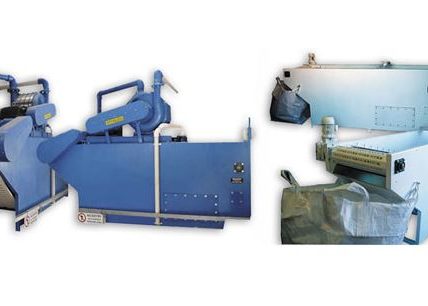Centrifuges have long been used commercially. In fact, starting in the mid-1800s, the first commercial centrifugal machines began to be utilised in the dairy processing industry to separate cream from milk. Before the invention, the process could take as long as 36 hours to complete.
It wasn’t until 1874, that a large-scale centrifuge was introduced. At a trade show, Wilhelm Lefeldt, a German engineer, showcased a centrifuge he developed that could separate 220 pounds of milk in about 30 minutes.
Ultimately, Lefeldt’s invention sparked the modern centrifugation industry. His separator showed that applying centrifugal force to a liquid could remove liquid or solid impurities quickly and precisely. Today, centrifuges are still used for this very reason. Centrifuges can purify liquids or remove water from solids or sludge – in a fraction of the time. As such, centrifuges are utilised in a number of industries to help speed up production.
What Are the Commercial Uses of Centrifuges?
Centrifugation continues to be utilised in the dairy processing industry, but today, mechanical separation has far-reaching uses. The technology is utilised in hundreds of industries. A few of the most common include:
Food Processing
Beyond dairy processing, the food processing industry relies on centrifugation for a variety of applications. If fact, you may be familiar with one. Have ever used a home juicer? Many countertop juicers utilise centrifugal force to remove impurities, like seeds or pulp, from homemade juices. These machines spin quickly around an axis, which creates the force that purifies the liquid. The result is a smooth juice.
Commercially, centrifuges have a similar use in beverage production, but they’re also used in vegetable oil production. For example, olive oil producers use centrifuges to separate the oil from vegetable water and olive paste.
Oil Refining and Production
Oil refining requires the raw oil to be clarified and impurities removed. Centrifuges offer the perfect solution, helping to purify and refine usable oil from crude or raw biofuels.
On oilfield operations, centrifuges also serve the important function of dewatering sludge created during the drilling process. Essentially, dewatering is the process of removing water from the sludge. Why? Oil producers typically must pay to dispose of this wet sludge. Centrifuges can help to minimise the water content in the sludge, helping to reduce disposal costs. In some cases, this water can also be recycled in the operation.
Municipal Wastewater Treatment
In the wastewater industry, dewatering sludge is another prime concern. Municipal water treatment facilities must process a large volume of sludge, and once the sludge has been dried, it’s typically shipped to landfills. Dried sludge, or cake, that has a higher water content is heavier, which increases transportation and disposal costs. Therefore, centrifugal and mechanical dewatering solutions have been developed that more effectively remove water from sludge. Additionally, centrifuges are used to cleanse and purify wash water.
Plastics and Polymer Industry
A lot of water is used in plastics production. For instance, PVC is produced using chemicals, water and a suspending agent, and through a chemical process, PVC particles are artificially created within this fluid. Ultimately, centrifugation is utilised to remove the water from this mixture, with the end result being PVC in powder form. Centrifugation is primarily used in plastics production to remove water and impurities from polymers.
Laboratory Testing
Lab centrifuges are smaller machines that are used to extremely fine particles and liquids. Often times, these centrifuges require ultra-high-speed spinning for maximum precision – as often times, these mechanical separates must be conducted down to the cellular level. Lab centrifuges have numerous applications. They can be used to separate blood samples, DNA testing, purify viruses, to isolate cells.
This is just a small sample of commercial centrifuge applications. Centrifuges are also widely used in mineral production, chemicals processing, and fish processing industries.
Yet, in all cases, the idea behind their use is the same. The powerful spinning force centrifuges apply to a liquid/liquid or solid/liquid substance is extremely effective at separating and isolating its contents.

